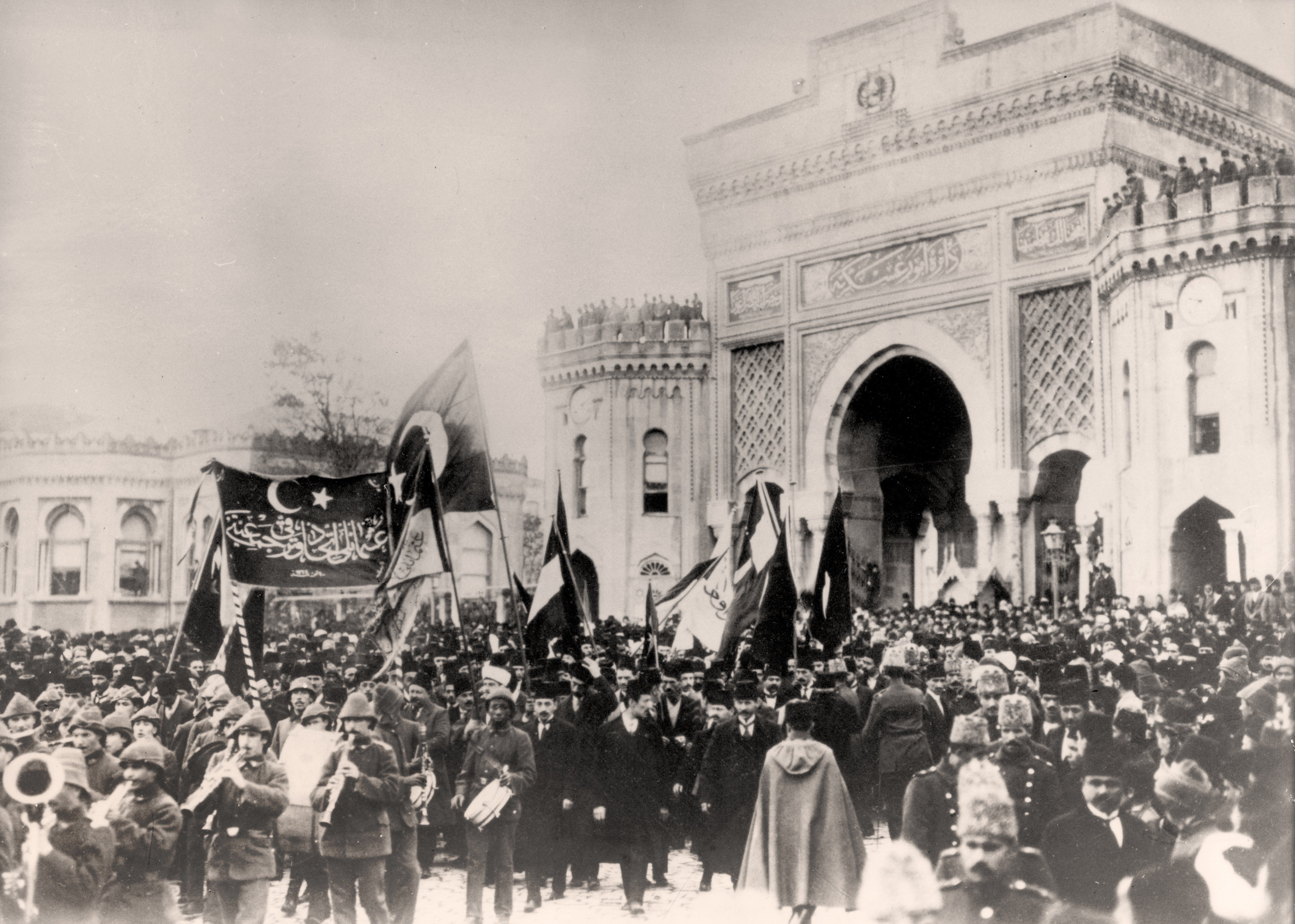How the Ottoman collapse led to decades of bloodshed in the Holy Land
Quick, when did the last Roman emperor abdicate power?
Did you say 476 CE? Maybe 1453 for the fans of Byzantium?
You’d be wrong, of course. The last emperor of Rome – or Kayser-i-Rûm, as he would have put it – stepped down exactly 101 years ago today, when Sultan Mehmet VI dissolved the Ottoman Empire. The Ottomans had claimed to be successors to the Eastern Roman Empire, which they conquered in the 15th century.
The Ottomans’ end was a long time coming: Mehmet’s ancestors struggled to reverse a long decline in Ottoman fortunes through the 18th and 19th centuries, and the nascent 20th had been no kinder. Revolts in the Balkans, driven by new ideas of ethno-nationalism, carved half a dozen new countries out of Ottoman lands in the years before World War I.
But it was Istanbul’s decision to side with Germany and Austria in that conflict that proved the coup de grâce, as Istanbul’s Entente adversaries successfully exploited ethnic and nationalist resentment against Turkish domination to weaken the empire’s periphery.
As the empire perished, the political, cultural, and economic structure that the Ottomans had imposed on the Middle East for nearly half a millennium unraveled with it, despite European attempts to reshape the region, leaving us to deal with the consequences even today.
In recognition of this understudied anniversary, GZERO is taking a deep dive into how the fall of the Ottoman Empire set up the dynamics that have dominated headlines for the last month: the Israeli-Palestinian conflict.
After the Ottomans joined the war, Britain and France attempted to storm the gates of Istanbul by seizing the Dardanelles Strait and sailing warships into Istanbul’s harbor.
It proved a macabre error. Against the Entente’s expectations, the Turks fought like lions to defend their capital, throwing back crack units from the foremost military powers of the age in eight months of dogged resistance on the Gallipoli peninsula.
If you’ve seen “Lawrence of Arabia,” you know what comes next. The Entente powers shifted tactics, focusing instead on the ethnically non-Turkish regions in the empire to undermine Istanbul. France and Britain began arming and advising the Arab Revolt, taking advantage of their mobility and local knowledge to outmaneuver largely ethnic Turkish forces fighting far from their homes in Anatolia. In exchange for their help, the Europeans promised a post-war Arab state stretching from Aleppo to Aden, in tune with the ethno-nationalist zeitgeist.
But behind the backs of their Arab allies, British and French diplomats had conspired to slice off the Arab-majority regions of the Ottoman empire in a secret treaty known as the Sykes-Picot Agreement of 1916. The British helped themselves to what is now southern Iraq, Jordan and Israel, while the French carved out Syria, Lebanon, and much of the Kurdish highlands in modern Iraq and Turkey.
Britain secured a mandate from the newly formed League of Nations to occupy and govern the southern Levant by 1922, officially called Palestine for the first time. About five years earlier, the British government had issued the Balfour Declaration, expressing support for a “national home for the Jewish people'' in the Holy Land, which the League’s mandate now obliged London to establish. Jewish communities, particularly from Eastern Europe, began migrating by the tens of thousands, while the Arabic-speaking Muslim and Christian communities in the region chafed at being sidelined by the British in favor of the newcomers.
Low-level violence became a regular thing, and a full-on Arab revolt against the British broke out in 1936. By late 1937, hard-pressed British forces called on Jewish militia to aid them, and violence continued up to the eve of World War II.
Faced with an incipient German invasion of Poland in 1939, the British issued a White Paper that heavily favored Arab interests, restricting Jewish immigration and rejecting a partition of the mandate into Jewish and Arab sections. Jewish authorities begrudgingly accepted the terms and supported Britain in hopes of securing better conditions later.
Then came the holocaust. Even as Nazi Germany killed Jews by the millions in Europe, the British refused to allow all those who escaped to settle in Mandatory Palestine. Many Jews who did manage to find their way to the Holy Land were thrown into detention camps or deported to far-flung imperial possessions like Mauritius. In response, radical Jewish militants began a guerilla campaign against British authorities in 1944, carrying out high-profile assassinations and terrorist bombings.
After the war in Europe ended, the British looked for a way out of Palestine. In 1947, they announced their intention to end the mandate, and pushed the problem onto the newly formed United Nations. The UN Special Committee on Palestine issued a plan to partition the territory into Arab and Jewish states with Jerusalem run by the UN. Arab leaders rejected the plan, saying it privileged Jewish interests. The British then announced they’d pull out all their troops by August 1948, even as Jewish and Arab violence ramped up.
They didn’t even make it to the summer. On 14 May 1948, the State of Israel formally declared its independence before the last British troops had pulled out of the port city of Haifa.By the next day, Israel was at war with Egypt, Syria, Lebanon, and Iraq.
